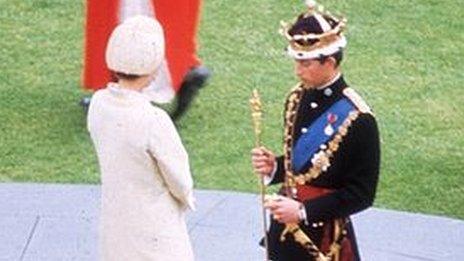Medieval discoveries unearthed in Caernarfon Castle works
- Published
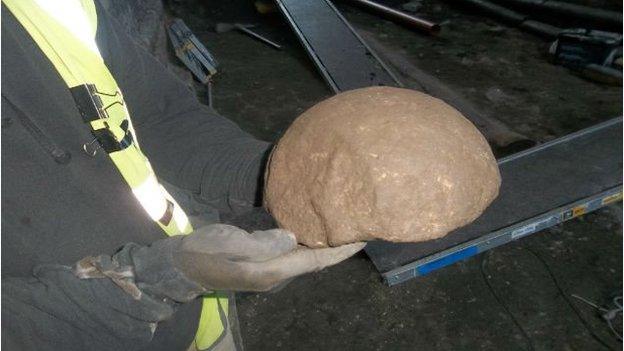
A large stone cannonball fragment was among the items found
Pistols, musket balls, animal bones and a piece of Roman pottery have been uncovered during work to build a new ticket entrance at Caernarfon Castle.
The discoveries were made at the site's Kings Gate where construction work is taking place.
Historic monuments body Cadw, external said the excavation revealed further evidence of two distinct periods in the castle's history.
Work is under way to assess the finds.
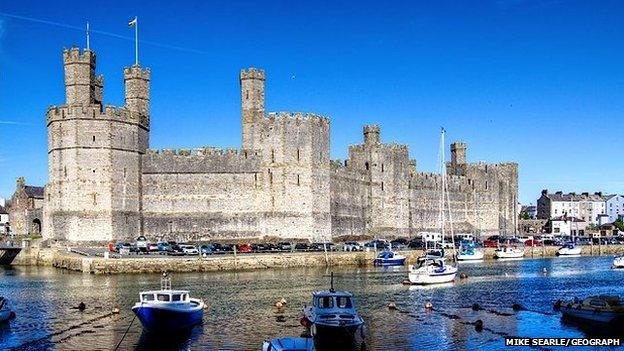
Caernarfon Castle was built in the 13th Century under the orders of King Edward I
Among the discoveries was a large rubbish pit found in the gatehouse, which is likely to date back to when the castle was under construction in 1283.
It contained a large amount of animal bones and shells, including oysters likely to have come from the Menai Strait.
It is hoped further analysis of the finds will provide an insight into the diet of the workers who built the castle.
Also found were weapons, including a large stone cannonball, pistols and musket balls thought to date back to when the castle was used as a stronghold in the 17th Century.
Clay tobacco pipes and a fragment of decorated Roman pottery, which pre-dates the castle by over 1,000 years, were also unearthed.
Experts at Cadw believe this would have reached the area during the occupation of the Roman fort at Segontium, on the outskirts of the town.
They say it is likely to have been carried on to the site during construction when large quantities of clay and stone were needed.
Scientific analysis of the materials and artefacts found will now take place.
- Published10 August 2013
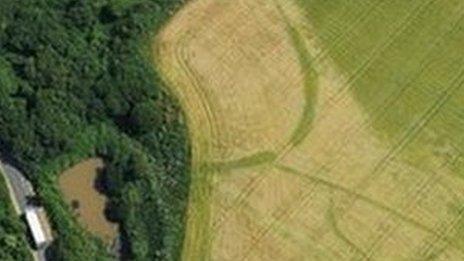
- Published26 September 2011
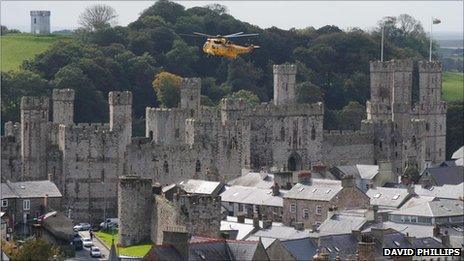
- Published28 May 2013
